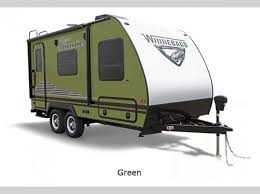How an RVing vacation affects your carbon footprint
Published on Nov 22, 2019
Carbon Footprint and your RV Vacation ( Don’t feel guilty! )
You recycle. You use energy-efficient CFL bulbs. Maybe you even drive a hybrid. You feel good that you’re doing your part to reduce your carbon footprint and protect the environment.
Then you go on vacation…..
You hop a plane, rent a car and check into a hotel. Even if you choose an economy car and take advantage of reduced maid service and limited linen replacement — if it’s even offered — one vacation can stomp out months of energy savings at home.
If you want to maintain a small carbon footprint when you vacation, RVing is the way to go green.

In a new study comparing total carbon dioxide (CO2) emissions, RV vacations proved considerably more environmentally friendly than traditional fly/drive/hotel vacations.
Conducted by internationally recognized travel/tourism consulting firm PKF Consulting, the study compared the CO2 emissions generated by a family of four vacationing in a RV to traditional vacations using airline, rental car and hotel accommodations. In every comparison, the RV vacation produced a significantly lower carbon footprint.
“RV vacations are not only fun, affordable and comfortable for families,” said Richard Coon, president of the Recreation Vehicle Industry Association (RVIA) in a website news release, “this study shows that they’re also more green than vacations including flying.”
The PKF study found that all classes of
RVs created less environmental impact than vacations that included air travel, car rental and hotel accommodations.
As an example, the study calculated the carbon emissions created by a family of four on a 10-day, 683-mile vacation from Minneapolis, MN to Branson, MO using traditional travel methods, as follows:
- 1.93 tons CO2 – airline
- 0.19 tons CO2 – rental car
- 0.49 tons CO2 – hotel
- 2.61 tons CO2 – total carbon footprint for fly/drive/hotel vacation
PKF then calculated the CO2 emissions created if the same family took the same trip using a recreational vehicle. As the results below show, every RV left a significantly smaller carbon footprint:
- 0.80 tons CO2 – car/folding camping trailer
- 1.26 tons CO2 – SUV/travel trailer
- 1.69 tons CO2 – Type C motorhome
- 1.35 tons CO2 – Type A motorhome (diesel)
The report compared several sample trips of varying durations to a variety of popular U.S. vacation spots. In every instance, RV vacations, no matter the type of recreational vehicle used, created a smaller carbon footprint than the same vacation using traditional fly/drive/hotel accommodations
.
Next vacation, keep your carbon footprint small. Go RVing and go green!


